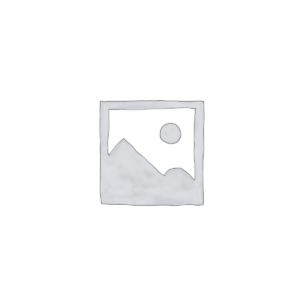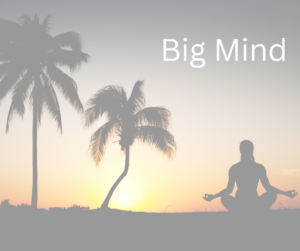Feeling drained? Like your battery is constantly at 2%? You’re not alone. Many people experience periods of low energy, and that’s where Reiki may help. This practice has gained popularity as a complementary therapy for stress reduction and promoting well-being.
What exactly is Reiki? Does it truly work? Let’s explore this energy healing practice, including its origins, potential benefits, and what a reiki session entails. We’ll also address common misconceptions.
Table of Contents:
- What is Reiki?
- The History and Principles of Reiki
- What Happens During a Reiki Session?
- Debunking Common Reiki Myths
- Is Reiki Right for You?
- Conclusion
What is Reiki?
Reiki, pronounced RAY-kee, is a Japanese form of energy healing. The word combines “rei,” meaning universal, and “ki,” signifying vital life force energy, as shared by the International Center for Reiki Training.
This “ki” is the energy that flows through all living things. It’s similar to “qi” in traditional Chinese medicine. Reiki practitioners act as conduits for universal energy. They channel it to recipients through hand movements, either by lightly touching or hovering above the body.
Practitioners believe they aren’t the energy source, merely facilitators of its flow. The recipient’s body draws from this energy what it needs for healing and balance. A reiki session can promote relaxation.
The History and Principles of Reiki
Reiki’s roots are in early 20th-century Japan. Buddhist priest Mikao Usui is credited as its founder, according to the Wikipedia Reiki page. Usui taught his system of reiki to over 2,000 people. His student, Chujiro Hayashi, trained Hawayo Takata, who brought Reiki to the West.
In 1970, Hawayo Takata opened the first reiki clinic in the United States. Reiki’s principles emphasize self-improvement and ethical ideals, promoting a gracious life. These are now called the Reiki Ideals. They were developed after Usui founded Reiki to focus on spiritual balance.
- Just for today, do not anger.
- Do not worry and be filled with gratitude.
- Devote yourself to your work.
- Be kind to people.
Practitioners may clear, beam, or smooth the aura during sessions. By adopting these principles alongside energy work, clients engage in healing.
What Happens During a Reiki Session?
A Reiki session happens in a quiet setting. The client remains clothed, lying on a table or seated. The practitioner gently places their hands on or above the client’s body. This typically begins at the head, moving toward the feet.
These locations may correspond to major chakras, which are focal points of energy. “Vital energy” is supposed to flow into the recipient. Scientific theories might study heart rate variability, temperature, and cortisol levels.
Some practitioners use crystals or chakra wands. Reiki Attunements connect students with universal energy. Some practitioners provide distant reiki healing or incorporate it into group sessions. Animal reiki and training opportunities for practitioners are sometimes available.
Debunking Common Reiki Myths
Myth 1: Reiki is a religion.
Reiki draws from life force energy and mindfulness. However, it is not a religion and lacks dogma. It requires no particular faith.
Myth 2: Reiki Clashes With Modern Medicine.
Reiki is a complementary therapy, not a replacement for medical treatment. It can support conventional medical practices and is even offered at hospitals. The cost is typically between $40 and $300 per session. Those seeking reiki training often start with “level 1” classes, sometimes provided by a reiki master.
Reiki should not replace necessary medical treatments. A person with cancer shouldn’t choose it over treatments prescribed by an oncologist. Some might confuse it with pseudoscience. Studies suggest that claims about Reiki’s benefits may be exaggerated.
Myth 3: There’s No Scientific Basis for Reiki.
Research on Reiki is still developing. There’s no firm evidence of its benefits in treating specific conditions. The National Center for Complementary and Integrative Medicine hasn’t found demonstrable benefit. This doesn’t negate the value of Reiki sessions, although a lack of clinical efficacy has been noted.
Some suggest stopping funding for Reiki research. Methods used in Reiki clinical trials have been called “nonsensical,” with flawed reporting. Some theories link Reiki to the “biofield,” an electromagnetic field around living things influencing physiological and psychological functioning.
Reiki also involves spiritual healing and originated in Japan in the early 1920s. Some physicians recommend Reiki alongside therapy, especially for healthcare professionals experiencing burnout. Its gentle, non-invasive nature makes it a suitable addition to existing treatment plans.
Is Reiki Right for You?
Reiki can reduce stress and encourage relaxation. It may work alongside other practices, like prayer. Reiki’s potential benefits and minimal risks (with a qualified practitioner) make it worth considering for those experiencing burnout. It’s for anyone seeking to improve their well-being.
Approach Reiki with a scientific perspective and measurable observations. Consider future group sessions led by energy channelers for open conversations and community support. If you’re seeking holistic methods, incorporating Reiki may be a step toward balancing your well-being.
Conclusion
Reiki is a gentle yet potentially powerful approach to self-care. It uses universal life force energy to reduce stress and promote relaxation. Reiki benefits overall wellness, boosting mood and general well-being.
Reiki also offers psychological support through suggestions during sessions, contributing to a positive experience for those attending regularly. Studies have also examined its use in palliative care. The scientific community is still exploring how Reiki works, with some calling it pseudoscientific, or akin to a placebo.
However, anecdotal evidence and personal experiences suggest Reiki is a valuable complementary practice for those seeking deeper self-connection and peace. Reiki has been practiced in Japan since around 1922. As someone once said, “I may not be able to explain Reiki, but I can certainly feel it.”
Exploring Reiki might lead you to incorporate reiki sessions with qualified reiki practitioners into your health routine. Reiki might help reduce negativity and promote balance on your spiritual journey. If you’re open to it, Reiki might leave you feeling refreshed and well.

